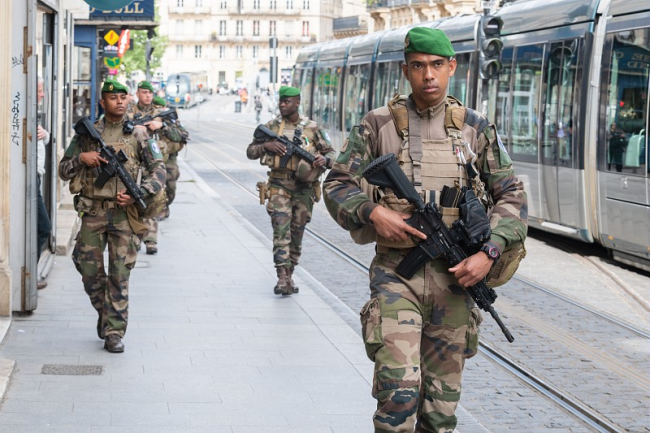La Guerre de vingt ans. Djihadisme et contre-terrorisme au XXIe siècle

La Guerre de vingt ans was awarded the Prize for the best book on geopolitics in 2021.

It has already been twenty years since the World Trade Center towers came crashing down. Who would have believed that, two decades later, the global war on terrorism continues without an end in sight? From the sands of the Sahara to the jungles of southeast Asia and from the Iraqi plains to the Afghani mountains, the West and its allies are still chasing down the jihadist movement with faultless determination. The threat is not limited to far-off countries; Europe, and especially France, have paid a high price for this long conflict.
Al-Qaeda has shown remarkable resilience, and several new groups, like ISIS, have since appeared. The fall of the so-called “caliphate” as proclaimed by ISIS does not signal the end to the organization, much less to its deadly ideology. There are now two to three times more jihadist fighters in the world than at the start of the twenty-first century. This discouraging figure from an endless war begs the question: what have we done in the last twenty years? Despite hundreds of thousands of human lives lost and considerable sums spent in the war on terrorism, why is the threat still so high?
This exceptional book, the fruit of several years of field investigations, offers the first history of the war on terrorism from 2001 to today. The authors decipher the strategic dynamics of this conflict by explaining why it is so difficult to break the spiral of violence and look back over these two decades of fighting in order to find essential lessons for the future.
La Guerre de vingt ans. Djihadisme et contre-terrorisme au XXIe siècle [The Twenty Years' War. Jihadism and Counter-terrorism in the 21st Century], Robert Laffont, 448 pages, 29 avril 2021.
Foreign rights enquiries: [email protected]

Related centers and programs
Discover our other research centers and programsFind out more
Discover all our analysesThe Franco-German Brigade and the Revival of European Defense
One thing has been clear since Donald Trump's return to the White House: the very existence of the European unification project is threatened. Unless it develops a sovereign defense policy to counter the war in Ukraine and the weakening of American security guarantees, the European Union will continue to see its internal cohesion and external attractiveness wane.
Taking the Pulse: Can Europeans Build Their Independent Extended Nuclear Deterrent?
Confronted with a U.S. disengagement and the Russian threat, Europeans are reconsidering their stance on nuclear deterrence. Given the capabilities of the French and British arsenals, can Europe develop an independent nuclear deterrent?

RAMSES 2024. A World to Be Remade
For its 42nd edition, RAMSES 2024 identifies three major challenges for 2024.
A Transatlantic Defense Industrial Base? Two Contrasting Views
The evolving landscape of global defense cooperation has brought the transatlantic relationship between the United States (US) and Europe into sharp focus. As geopolitical tensions rise and the threat environment becomes more complex, the question of how Europe can best ensure its security while navigating its relationship with the United States has become paramount. This double feature report offers two contrasting views on the dynamics of US-Europe defense industrial relations, highlighting the challenges and opportunities that lie ahead for both parties.













